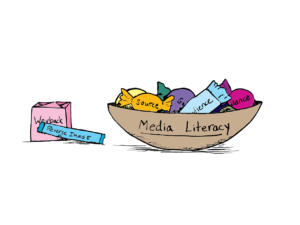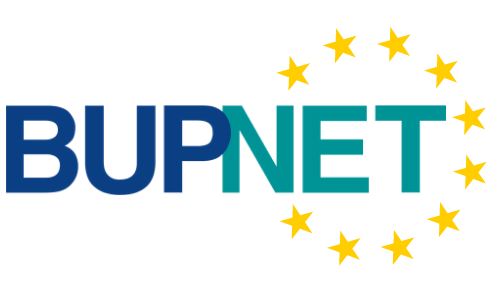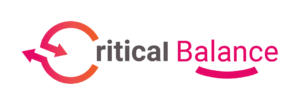In our research, we identified many resources offering some contents on media literacy and critical thinking. They can help young people resist the spread of disinformation. Here are some of them:
- Die Bundeszentrale für politische Bildung: https://www.bpb.de/ – The work done by the Federal Agency for Civic Education centres on promoting awareness for democracy and participation in politics. It takes up topical and historical subjects by issuing publications, by organising seminars, events, study trips, exhibitions and competitions, by providing extension training for journalists and by offering films and on-line products.
 Klicksafe: https://www.klicksafe.de/ – The EU initiative aims to promote people’s online skills and to support them in their competent and critical use of the Internet with a wide range of offers. klicksafe bundles and develops relevant information and offers for safe, competent and self-determined Internet use. They are aimed in particular at people who support children and young people in developing their Internet skills – from parents to teachers to multipliers – but also at anyone who wants to get fit themselves. Users get an overview of current online topics and concrete tips for everyday digital life.
Klicksafe: https://www.klicksafe.de/ – The EU initiative aims to promote people’s online skills and to support them in their competent and critical use of the Internet with a wide range of offers. klicksafe bundles and develops relevant information and offers for safe, competent and self-determined Internet use. They are aimed in particular at people who support children and young people in developing their Internet skills – from parents to teachers to multipliers – but also at anyone who wants to get fit themselves. Users get an overview of current online topics and concrete tips for everyday digital life.- Netzpolitik podcast: https://netzpolitik.org/category/netzpolitik-podcast/ – netzpolitik.org is a medium for digital freedoms. They address the important issues surrounding the Internet, society and politics, and show ways in which people can also use the Net to advocate for digital freedoms and openness themselves. They describe how politics changes the internet through regulation and how the net changes politics, publics and everything else. Their audio podcast has 256 episodes.
- The model project „#vrschwrng – Ein interaktives Toolkit gegen Verschwörungstheorien“: https://www.vrschwrng.de/ 0 The l project aims to offer young people between the ages of 16 and 20 from different educational contexts a space to critically engage with conspiracy theories, the underlying narratives as well as corresponding attitude patterns. The various modules stimulate socio-emotional learning and strengthen the young people’s ability to deal with conflict and their tolerance of ambiguity.
- The Project Debunk of the Amadeu Antonio Stiftung: https://www.amadeu-antonio-stiftung.de/projekte/debunk/ – The project trains teenagers, young adults and teachers to recognize anti-Semitic, conspiracy ideological and other anti-democratic content and sensitizes them to its manipulative character. The project provides information on and offline about current developments and publications on the topic.
- The game plan Die Welt am Abgrund of the Amadeu Antonio Stiftung. https://www.amadeu-antonio-stiftung.de/publikationen/die-welt-am-abgrund-planspiel-zu-antisemitischen-verschwoerungstheorien/ – The game is about searching for the truth in unsettling times. Seven mysterious holes in the earth plunge the world in 2031 into a global catastrophe with many casualties. People are afraid and looking for answers. In the name of science, in the belief in higher beings or as true representatives of the “people”, various movements and states develop (conspiracy) theories about the cause of the catastrophe. They compete with each other and develop demands.
- A an online course of the Landeszentrale für politische Bildung Baden-Württemberg. Sind denn alle verrückt hier? Verschwörungstheorien erkennen: https://www.elearning-politik.de/verschwoerungstheorien-kurs – In an open online classroom, students in grades 6 and up learn through multimedia how to recognize conspiracy theories, what they can do, and how to handle information on the Internet responsibly.
- A school course topic by Medien in die Schule. »Meinung im Netz gestalten«: https://www.medien-in-die-schule.de/unterrichtseinheiten/meinung-im-netz-gestalten/moduluebersicht/ – Composed of 5 units, the topic includes the analysis of one’s own staging and modes of action on the Net, the interlocking of social and living space with digital space, the search for and evaluation of information and, last but not least, the advocacy of positions, opinions and views.
- Another offer on media literacy is prepared by the Deutscher Volkshochschul-Verband: Modulbox „Politische Medienbildung für Jugendliche. Auf Verschwörungserzählungen reagieren“: https://www.volkshochschule.de/verbandswelt/projekte/politische_jugendbildung/modulbox-zu-verschwoerungserzaehlungen.php – The module box is intended to provide educational professionals with a good professional basis for implementing educational offerings (series of lessons, workshops, project weeks, etc.) in order to specifically strengthen young people’s media literacy and critical judgment with regard to conspiracy narratives.
- A selection of courses is offered by weitklick – Onlinekurse für Lehrende zum Selbstlernen: https://www.weitklick.de/kurse – The courses are aimed at all teachers of secondary general and vocational schools and can be conducted without prior knowledge. Each course consists of two modules that build on each other thematically. Please put together your own training package according to your individual wishes.
- A collection of teaching material from so geht MEDIEN (a media literacy initiative of ARD, ZDF and Deutschlandradio): Unterrichtsmaterial für alle Schularten – https://www.br.de/sogehtmedien/index.html – The teaching material explains how media work in a multimedia and uncomplicated way. The modules are designed for use in secondary schools – and some also for elementary schools: each with a humorous video, a suggestion for designing the school lesson.

